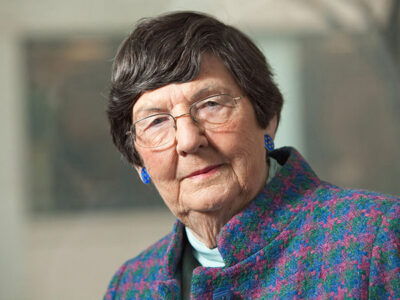Gerald E. Hanks was a giant in the world of radiation oncology and oncology in general. It isn't often that we can say this and probably understate a person's significance and influence, but Jerry was one of those people. He died on Dec. 20, 2017, at the age of 83.
Jimmie C. Holland, internationally recognized as the founder of the field of psycho-oncology, died suddenly on Dec. 24, 2017, at the age of 89.
Today's issue of The Cancer Letter contains a new section devoted to clinical news.
The National Cancer Institute Cancer Therapy Evaluation Program approved the following clinical research studies last month. For further information, contact the principal investigator listed.
Two Johns Hopkins prostate cancer researchers found significant disparities when they submitted identical patient samples to two different commercial liquid biopsy providers.
The Hokusai-VTE CANCER study evaluating oral edoxaban (known as Savaysa in the U.S. and Lixiana outside the U.S.) found edoxaban to be non-inferior to subcutaneous injectable LMWH dalteparin for the treatment of cancer-associated VTE or major bleeding.
Patients with early stage lung cancer live longer when they receive a lobectomy rather than a less extensive operation or radiation treatment, according to a study published in The Annals of Thoracic Surgery.
A phase IIb clinical trial for Galera Therapeutics' GC4419 met its primary endpoint, demonstrating a significant (p=0.024), clinically meaningful and dose-dependent reduction in the duration of severe oral mucositis in patients with head and neck cancer receiving chemoradiation.
A pivotal phase II clinical study of cemiplimab, an investigational human antibody targeting PD-1, demonstrated an overall response rate of 46.3% in 82 patients with advanced cutaneous squamous cell carcinoma.
Genentech's phase III IMmotion151 study met its co-primary endpoint ofprogression-free survival and demonstrated that the combination of Tecentriq (atezolizumab) and Avastin (bevacizumab) provided a statistically significant and clinically meaningful reduction in the risk of disease worsening or death in people whose disease expressed the PD-L1 (PD-L1 expression ≥1 percent) protein compared with sunitinib for the first-line treatment of people who have advanced or metastatic renal cell carcinoma.








